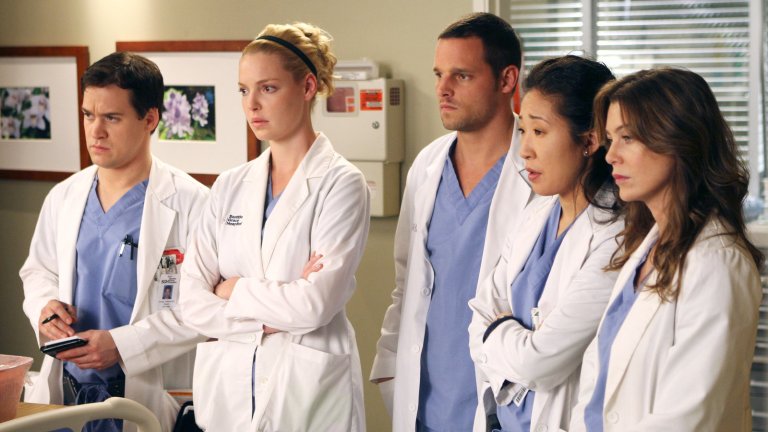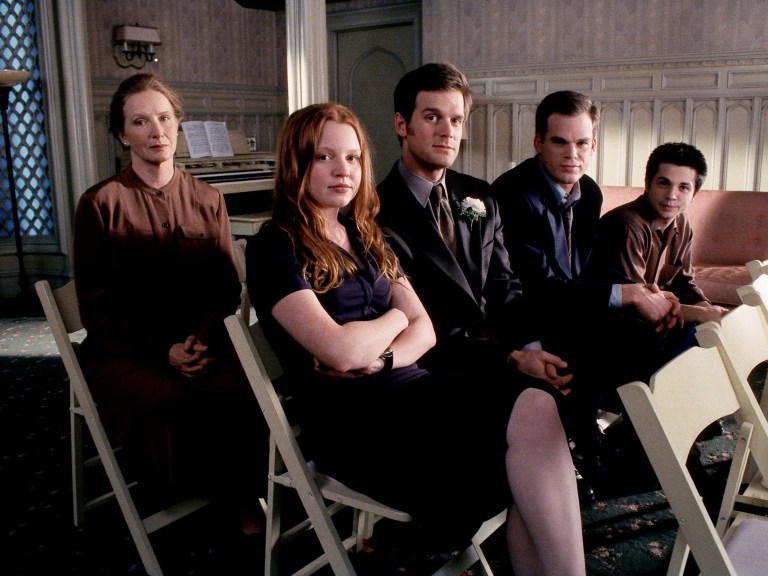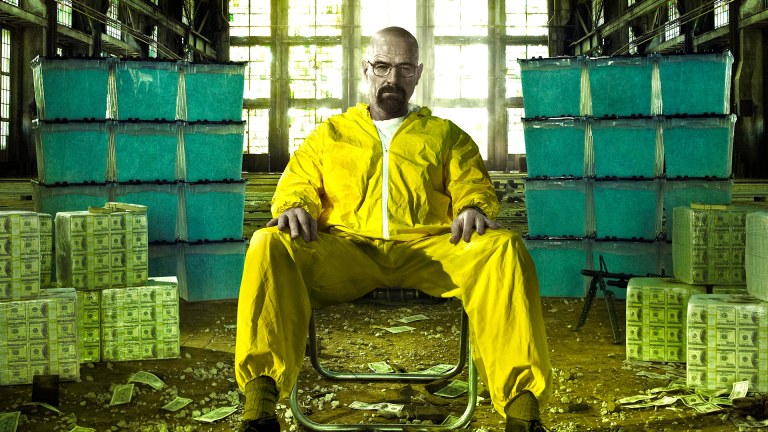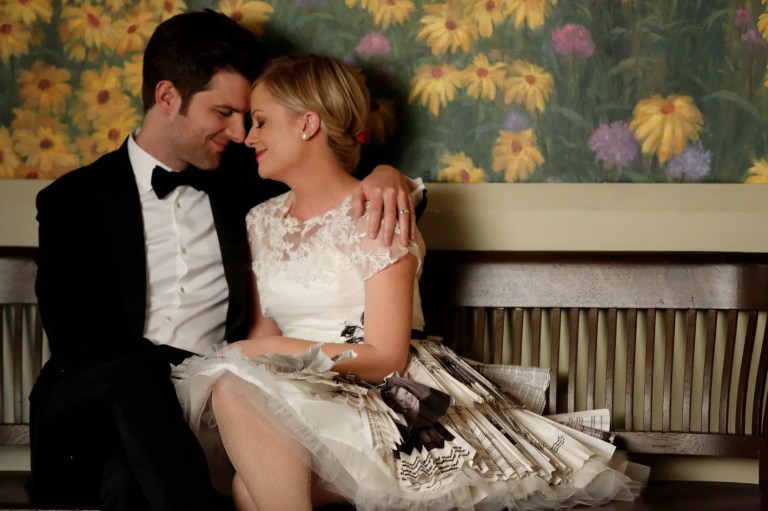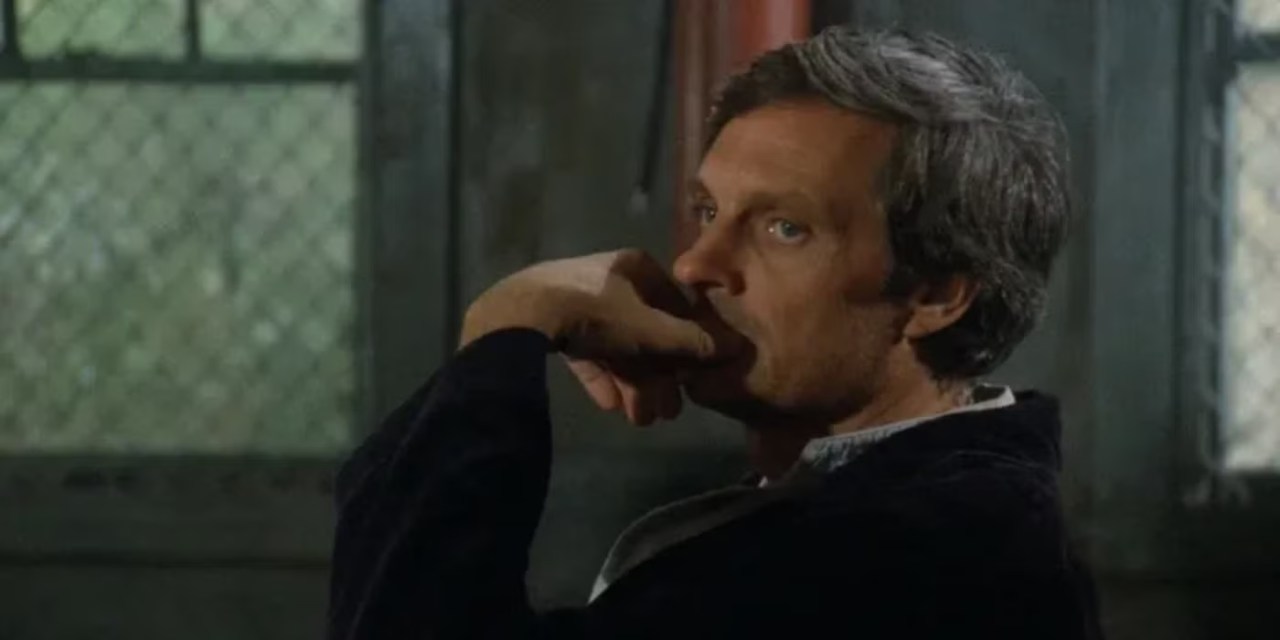
6 Surprisingly Dark Moments In Beloved TV Sitcoms
As most people easily recognize, sitcoms serve as an altogether lighter television option to help us cheerfully draw the day to a close.
After all, no one switches on an episode of Seinfeld or Cheers expecting to experience a hard-boiled drama straight out of Breaking Bad or The Sopranos. Instead, each of us tune in to a respective sitcom in the hopes of watching something to help us laugh or – at the very least – make us smile.
With that in mind, whenever a sitcom does opt for darker subject matter, viewers can’t help but express shock, confusion, and bewilderment at the grittier content of their favorite comedy series’ one-off episodes. From family-friendly children’s shows to era-defining ‘70s sitcoms, here are some of the darkest episodes in famously feel-good TV series.
The Ice Age Begins (Dinosaurs)
It’s a bold move to end any sitcom with the death of not one, not two, but literally every single character on the show. But in 1994, that’s exactly the direction Dinosaurs took with its shockingly downbeat final episode, “Changing Nature.” Rather than ending the series on a satisfying high note, Dinosaurs’ showrunners decided to deliver one last message advocating for environmental protection (a recurring subject throughout the show). Killing off every major character with the inevitable start of the Ice Age, Dinosaurs’ series finale leaves an undeniable impression on viewers to this very day.
The Bicycle Man (Diff’rent Strokes)
In many ways, Diff’rent Strokes’ “The Bicycle Man” changed the very nature of mainstream sitcoms moving forward. Debuting on American airwaves in 1983, Diff’rent Strokes’ showrunners advertised “The Bicycle Man” as a wholly different kind of TV episode, one that discussed serious themes in a straightforward, non-humorous manner. With the bulk of this episode revolving around a seemingly down-to-earth bicycle shop owner who develops an unhealthy interest in Arnold and Dudley, “The Bicycle Man” feels more like a lost episode C.S.I. or Criminal Minds than it does an approachable comedy the whole family could sit down and watch together.
The Final Push (Blackadder)
To be fair, every season of Blackadder ended on with a remarkably dark finale, wherein most (if not all) of the main characters died within the final few moments of the season. Yet even then, Blackadder Goes Forth’s “Goodbyeee” appears as a horse of an entirely different color, making all other Blackadder finales seem as joyous and optimistic as an early Disney movie. Analyzing the dehumanizing bureaucracy and systemic ineptitude that characterizes most military conflicts, “Goodbyeee” focuses on Captain Blackadder and his troops as they prepare for one last offensive push against the German lines. While viewers spend every minute of the episode hoping against hope a peace agreement might finally be broached between the Allies and Central Powers of World War I, the closing moments of “Goodbyeee” show otherwise, zeroing in on Blackadder’s company as they charge into a hail of gunfire and the hellish horrors of no man’s land before them.
Sandy’s Death (Growing Pains)
Before audiences knew him as the famously snarky Chandler Bing, the late great Matthew Perry appeared in a three-episode story arc in ABC’s beloved family sitcom, Growing Pains. Making his debut as Carol’s college-age boyfriend Sandy, Perry’s tenure on the series came to a screeching halt with his unexpected death in Growing Pain’s fourth season. After getting involved in a drunk driving accident, Carol and her family are informed of Sandy’s seemingly superficial injuries, only to later learn that her boyfriend has passed away from prolonged internal bleeding. A gutwrenching moment in an otherwise light-hearted sitcom, it’s also an episode that helped demonstrate the seriousness of drunk driving-related incidents, contributing to a heartstopping death literally no one saw coming.
Edith’s Assault (All in the Family)
All in the Family regularly tackled some serious subject matter over its nine critically acclaimed seasons, including such highly sensitive topics as racism, homophobia, religion, feminism, and the turbulent political landscape of the 1970s. For every serious topic the show discussed, however, “Edith’s 50th Birthday” continues to resonate with viewers nearly 50 years after it initially aired, serving as one of the most uncomfortable sitcoms episodes ever seen on primetime television.
With the entire episode featuring a dangerous criminal breaking into the Bunkers’ home and attempting to assault Edith, “Edith’s 50th Birthday” can make for a distressing viewing experience for most, especially as audiences witness Edith desperately try to stave off the assault and reach her family next-door. In a series that made a habit of discussing difficult subjects, “Edith’s 50th Birthday” stands among the most hard-hitting episodes in All in the Family’s continuity.
The Death of An Infant Baby (M*A*S*H)
Given its basis on the historical Korean War, it’s not exactly surprising that M*A*S*H occasionally veered towards some disquieting territory in the course of its 11 seasons on television. While some audiences might immediately credit Colonel Henry Blake’s unexpected death at the tail-end of Season 3 as the show’s darkest moment, we’d be remiss if we didn’t mention the entire “chicken story” at the heart of M*A*S*H’s series finale, “Goodbye, Farewell and Amen.”
As Hawkeye receives combat-related therapy sessions, the former wartime surgeon recounts an incident where he instructed a Korean refugee to quiet down her unruly pet chicken, leading the refugee to smother the animal lest they be overheard by an enemy patrol. While we certainly can’t condone casual animal cruelty, “Goodbye, Farewell and Amen” shockingly reveals that the chicken was in fact a human baby, causing Hawkeye to break down into a guilt-ridden, emotional wreck. A painful moment in M*A*S*H’s long production history, it’s an episode still capable of taking viewers’ breath away over four decades later.

